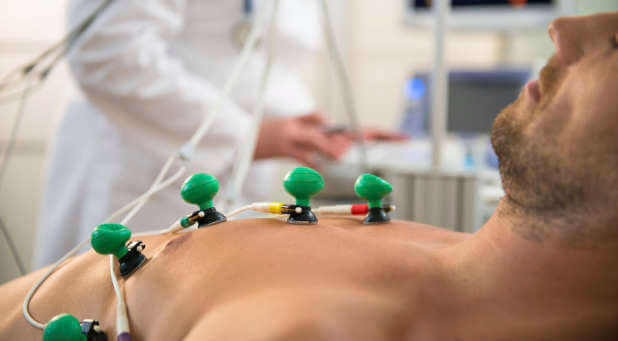Chelation therapy, an alternative technique long dismissed by conventional heart doctors, has taken a giant step toward becoming a first-line mainstream medical treatment, thanks to a boost from the National Institutes of Health.
The federal health agency’s National Center for Complementary and Integrative Health has awarded $800,000 to Mount Sinai Medical Center of Florida and the Duke Clinical Research Institute to begin a follow-up study of chelation that could lead to its use as a standard treatment for cardiovascular disease.
The funding, which will allow the research team to design a definitive study on chelation’s benefits, follows a preliminary clinical trial that showed the technique provides a huge health boost to heart attack survivors that rivals the benefits of standard treatments.
That early study, published online in the American Heart Journal, found the combo treatment cut the death risk for some heart patients by half and is particularly beneficial to those with diabetes.
Lead researcher Gervasio Lamas, M.D., with the Columbia University Division of Cardiology at Mount Sinai, said the results came as a complete surprise to the researchers, who expected the study to prove chelation is a sham treatment.
Instead, the earlier findings were positive, said Dr. Lamas, who was once a skeptic chelation. If the latest follow-up study confirms the treatment’s effectiveness, it could catapult the therapeutic approach into the mainstream, in treating cardiovascular disease—the nation’s No. 1 killer.
“I think this a huge step forward,” Dr. Lamas told Newsmax Health. “Where we were when we started this research … we expected this would be a negative study that would be debunking chelation and this would prove it doesn’t work.
“But in fact we didn’t find that… It was a complete turnaround from what we expected.”
Dr. Lamas’ initial study—called the Trial to Assess Chelation Therapy (TACT)—involved 1,708 heart patients at 134 clinics in the U.S. and Canada, including such prestigious facilities as Johns Hopkins and the Mayo Clinic. All of the patients were heart attack survivors—50 and older, a third of them diabetics—who were taking heart medication.
The study participants were divided into four groups: The first received chelation injections (known as “infusions”), plus high-dose oral multivitamins; the second was given chelation with a placebo (in place of vitamins); the third, placebo infusions (in place of chelation) with high-dose multivitamins; and the fourth were administered placebo infusions with oral placebo.
The researchers then tracked the participants for seven years to see which patients experienced a second heart attack, stroke, bypass surgery, other cardiovascular events or died. The results showed those who received chelation therapy with vitamin supplements had a 26 percent lower risk of heart complications, compared with those given placebos.
In diabetic patients, the combo therapy was associated with a 49 percent lower risk of heart complications. Chelation (with or without vitamins) was also found to cut the risk of death among diabetics by half over the course of the study.
“There is nothing like this for diabetes care,” Dr. Lamas said. “There just isn’t.”
In follow-up meetings with the FDA, Dr. Lamas presented his findings and pressed for a federal review of chelation therapy as an approved treatment for heart patients, alongside other conventional therapies such as the use of cholesterol-lowering statins, aspirin and other heart drugs.
Although chelation is an FDA-approved method for treating lead and toxic metal poisoning, it is not currently approved for other medical applications.
The therapy uses a synthetic amino acid (ethylene diamine tetraacetic acid), which binds to toxic metals and minerals in the bloodstream, allowing a patient to excrete them. Some experts believe heavy metal contamination causes or contributes to heart disease and that chelation rids the body of deposits that can lead to atherosclerosis, which causes coronary arteries to narrow, leading to heart attacks.
For the next leg of Dr. Lamas’ research, he expects to enroll 1,200 patients in the U.S. and Canada who will be treated and tracked for five years.
Dr. Lamas says he hopes his continuing research will convince other cardiologists to embrace chelation.
“When you do research and you get the findings that you expect they are always less interesting than when you do research and you get findings you don’t expect,” Dr. Lamas said. “That’s where you learn; that’s where you have to be able to go to the next step, where you can really help patients.”
For the original article, visit newsmaxhealth.com.











































